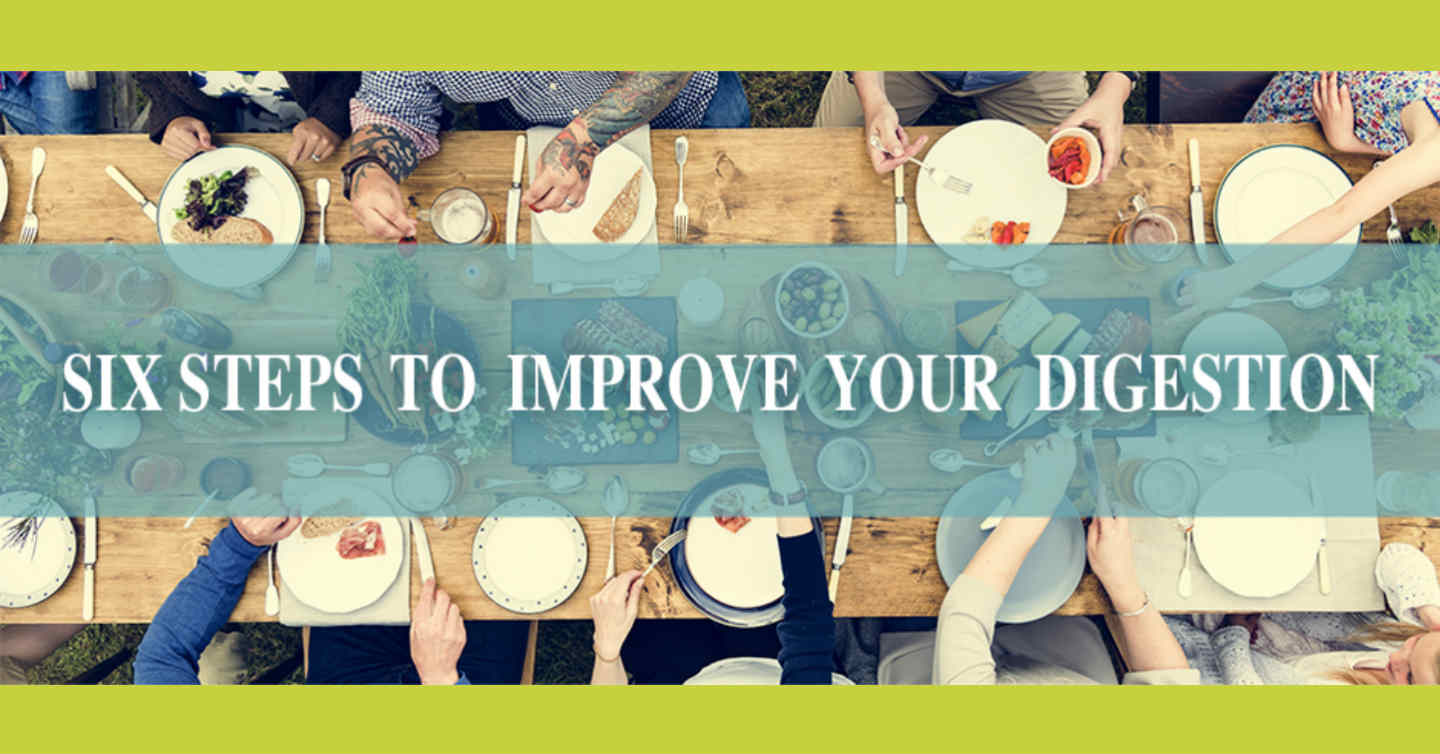Six Steps to Improve Your Digestion

How to Help Your Digestive System
Our digestive system is responsible for turning food into energy and sending the vital vitamins and minerals we need to survive to our other organs. It also helps us dispel food and ingredients our body doesn’t need.
Everyone experiences occasional digestive issues such as upset stomach, gas, heartburn, nausea, constipation or diarrhea. The average American diet of refined carbs, saturated fat and food additives can cause these occasional symptoms to occur frequently and disrupt your life. When your digestive system becomes overworked it could create issues like constipation, skin rashes, fatigue and a lowered immune system.
What you eat, when you eat and how you eat can make a difference.
Tips for naturally improving digestion
Eat More Whole Foods
Eat real, unprocessed food and ditch the artificial sweeteners. Focus on fruits and vegetables. Try replacing a bagel in the morning with a fruit and vegetable smoothie (spinach, frozen mango, parsley and coconut water).
Don’t eat late at night
Eating late at night can cause sleep problems and it’s easy to mindlessly snack at night when you aren’t truly hungry. Try having fruit after dinner or a piece of dark chocolate so you feel satisfied into the evening.
Eat small meals
Focus on eating until satisfied, not stuffed. Large meals can burden the digestive system and cause your blood sugar levels to fall after the meal is digested, resulting in energy and mood crashes. Try smaller main meals with light snacks in between.
Stay hydrated
Include water with every meal or snack. People often confuse hunger with thirst which can cause them to eat more to feel full. Water also helps move food and waste through your body. Try being mindful about drinking one full glass of water every time you eat a meal or snack.
Manage your stress
Stress can have a direct effect on your digestion. Make eating less stressful by going somewhere quiet, sitting at a table and enjoying your meal. Remember to give your food the time and attention it deserves. Try paying attention to your food and eating consciously and slowly.
Start a probiotic
A good probiotic can help replenish your body’s supply of beneficial bacteria. Not all probiotics are created equal, so ask your personal doctor to recommend the probiotic that would be best for you. Try introducing probiotics by eating foods that naturally contain them like Greek yogurt, kombucha, kefir and sauerkraut.

